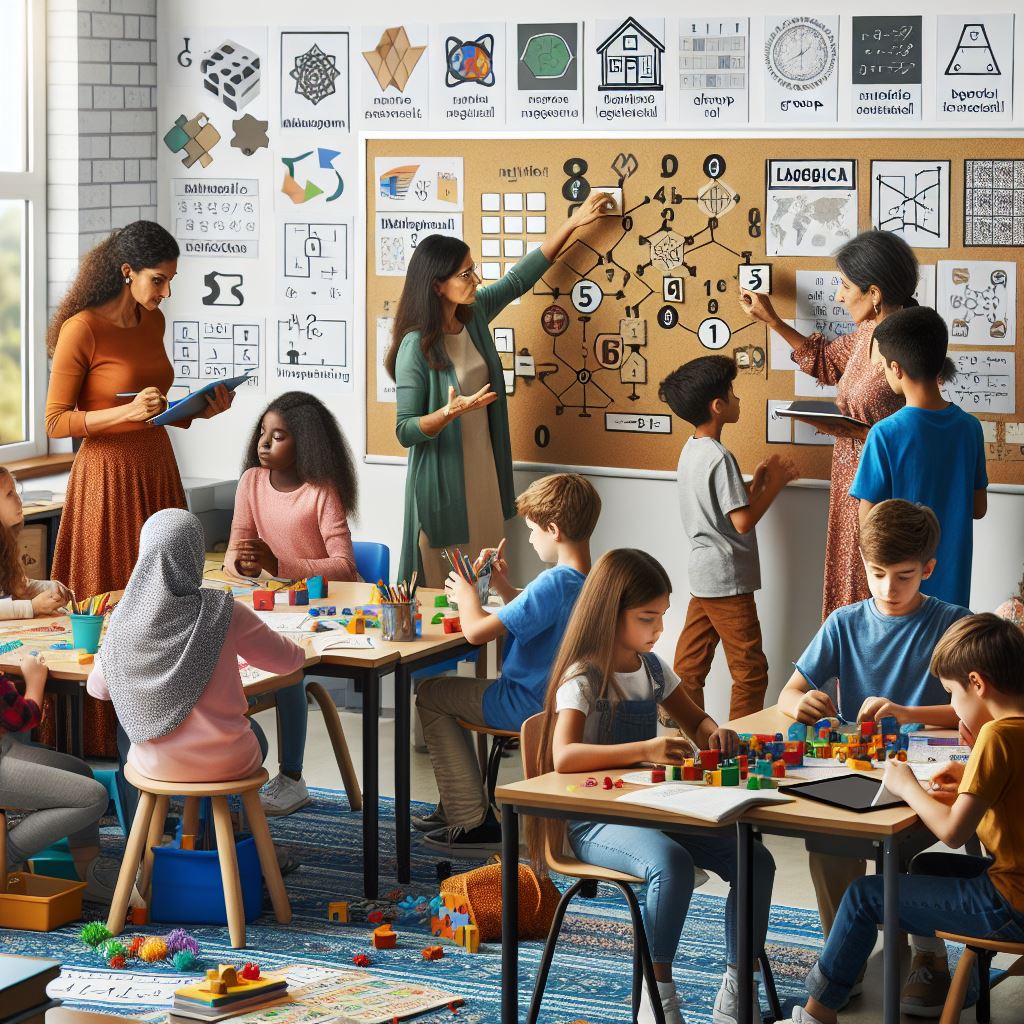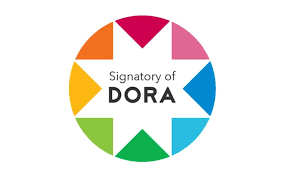Estrategias didácticas para el desarrollo del pensamiento lógico matemático en educación general básica
DOI:
https://doi.org/10.56124/sapientiae.v8i16.024Palabras clave:
estrategias didácticas, recursos didácticos, desarrollo del pensamiento lógicoResumen
Las estrategias didácticas son de suma importancia para el proceso de enseñanza y aprendizaje y más en el área de matemáticas, debido a que según los estándares internacionales el rendimiento estudiantil en la materia ha sido bajo en el Ecuador, así como la desigualdad académica, siendo esto una de las problemáticas principales, a partir de ello se planteó determinar los hallazgos teóricos de diferentes autores sobre el uso de métodos para mejorar las habilidades lógicas matemáticas en este particular se realizó una revisión documental de 24 trabajos de investigación entre los que destacan artículos publicados en revistas indexadas en catálogos Scopus, Scielo, latindex 2.0, así como otros de libre acceso disponibles en Google académico, para ello se usó los métodos histórico lógico, analítico sintético, por otro lado está sustentado en el paradigma post positivista con un enfoque cualitativo de tipo interpretativo, dentro del proceso metodológico se planteó el arqueo de fuentes, la revisión, el cotejo, la interpretación y las conclusiones, dentro de los resultados más importantes destaca la 407 problemática de implementación de estrategias didácticas debido a la dificultad del manejo de recursos digitales por otro lado las estrategias más aplicadas por los docentes son el uso de la gamificación, enseñanza basada en juego y las tecnologías de información debido a que ellas adaptan los procesos vivenciales, argumentativos y de aprendizaje significativo, el uso de nuevas estrategias en neuroeducación beneficia la enseñanza y logrará mejores resultados.
Descargas
Citas
Casis, M. (2021). Dominio Afectivo: un enfoque desde la didáctica de las matemáticas.UniversidadFinísTerrae. https://www.youtube.com/watch?v=1SDP4_sK5Vk&t=2618s.
Delgado,M.&Ponce,K. (2024)Laneuroeducaciónylaenseñanzade matemática en el subnivel elemental de la Educación Básica del Ecuador. Revista Invecom “Estudios transdisciplinarios en comunicación y sociedad” Vol.4,#1.www.revistainvecom.org.
Flores Carrillo, J. C., Sampedro Mackliff, S. M., Chavarría Barberán, J. V., Campana Deca, M. L. (2024). La gamificación y su incidencia en la enseñanza-aprendizaje de matemáticas, Unidad Educativa Nicolás Infante Díaz.MaestroySociedad,21(3),1260-1269.https://maestroysociedad.uo.edu.cu
García-Andrés,J,Gómez-Muñiz,V.(2022).¿Aprendizajebasadoenjuegos?“Catedral1221”comoejemplopráctico.Clío.HistoryandHistoryTeaching,48.70-91https://doi.org/10.26754/ojs_clio/clio.2022487292https://papiro.unizar.es/ojs/index.php/clio
Gironda,M.,González-Silva,J.,Conejero,M.,&Fernández-Echeverría,C.(2024). An educational proposal in 4th grade based on collaboration-opposition games under the cooperative learning model to promote group cohesion. ESHPA -Education, Sport, Health and Physical Activity, 8(1), 368-387. https://doi.org/10.5281/zenodo.10640029
González, W. (2024). La estrategia de gamificación en una niña con dificultades de aprendizaje en las matemáticas. La Libertad. [Tesis de maestría, Universidad Estatal Península de Santa Elena, Ecuador]. Repositorio de la upse.https://repositorio.upse.edu.ec/handle/46000/10949
Hurtado,J.(2015).Elproyectodeinvestigación.Comprensiónholísticadelametodología y la investigación. Sexta Edición. Ediciones Quirón. Bogotá.Colombia
López,G.(2024)Planificaciónderutasparaelaprendizajedelasmatemáticasen estudiantesdeunainstitucióneducativaYamango,2023.Trabajodegrado para optar al título de Magister en administración educativa.Universidad Cesar Vallejo. Piura-Perú
Mainato,E.&Rodríguez,V.(2024).EstrategiasdidácticasapoyadasenlaTICpara la enseñanza de las matemáticas. Mamakuna, (22), 48–59. https://revistas.unae.edu.ec/index.php/mamakuna/article/view/911
Merino, I. López, G. (2024) Planificación de rutas para el aprendizaje de las matemáticas en estudiantes de una institución educativa Yamango, 2023 trabajo para optar al título de magister en administración de la educación disponibleenrepositoriodigitalUniversidadCesarVallejo https://hdl.handle.net/20.500.12692/132819
Moncayo Redin, J., Jiménez Contreras, J. & Llerena-Izquierdo, J. (2024). Innovación pedagógica en el proceso de enseñanza-aprendizaje de matemáticas para estudiantes de bachillerato general unificado considerando tecnologías de información y comunicación. Revista InGenio, 7(2), 70–84. https://doi.org/10.18779/ingenio.v7i2.807
Ordóñez-Barberán, P.S., & Sánchez-Godoy, D. D. (2024). Estrategias metacognitivas para la enseñanza de las matemáticas en educación secundaria.MultiversoJournal,4(6),19-28.https://doi.org/10.46502/issn.2792-3681/2024.6.2
OrtizAlonso,M.(2024).Elámbitoafectivoenelprocesodeenseñanza-aprendizaje de las matemáticas. Scientia Agricolis Vita, 1(1), 41–45. https://doi.org/10.29105/agricolis.v1i1.8.
MinisteriodeEducacióndeEcuador(2020):CurrículoEducativopriorizadode Ecuador https://educacion.gob.ec/
MonroyAndrade,J.(2024).Elusodelasnuevastecnologíasenlaenseñanzadelas matemáticas:unarevisiónsistemática.Tecnología,CienciayEducación,28, 115-140. https://doi.org/10.51302/
Nizama, Y. (2023) Juego motor para mejorar el aprendizaje de las matemáticas enlosniñosyniñasde5añosdelaIEPSanPabloCalleMorante,distritode Catacaos, Piura 2023.
Ordóñez, P. & Sánchez, D. (2024). Estrategias metacognitivas para la enseñanza de las matemáticas en educación secundaria. MultiversoJournal,4(6), 19–28.https://doi.org/10.46502/issn.2792-3681/2024.6.2
Ortiz, M. (2024) «El ámbito afectivo en el proceso de enseñanza-aprendizaje de las matemáticas», Scientia Agricolis Vita, 1(1), pp. 39–43. doi:10.29105/agricolis.v1i1.8.
Parra,M.(2024).ModelopedagógicoMULTI-CREA,paralaenseñanzayaprendizaje delasmatemáticasenelaulamultigradodeprimariacontextualizadoalos oficios.
Pinargote-Zambrano,J.J.,Lino-Calle,V.A.,&Vera-Almeida,B.J.(2024).Python en la enseñanza de las Matemáticas para estudiantes de nivelación en Educaciónuperior.MQRInvestigar,8(3),3966-3989.https://doi.org/10.56048/MQR20225.8.3.2024.3966-3989
Reyes-Ruiz,L.&CarmonaAlvarado,F.A.(2020).Lainvestigacióndocumentalpara lacomprensiónontológicadelobjetodeestudio.UniversidadSimónBolívar.
Rodríguez, G. & Rubí, Y. (2024) Gamificación como estrategia para la enseñanza de la matemática. Revista de historia, geografía, arte y cultura vol.12 num.23 pagina 63-79.
Ruiz, A. Estrada, A. & Ortega, M. (2024). Gamificación en el aprendizaje de las matemáticas.Matemáticas,IngenieríayCienciasAmbientales,7(12),57–65.https://revistamica.com/index.php/mica/article/view/79
Salcedo-de-la-Fuente, R., Herrera-Carrasco, L., Illanes-Aguilar, L., Poblete-Valderrama,F.,&Rodas-Kürten,V.(2024).Lasemocionesenelprocesode aprendizaje: revisión sistemática. Revista de estudios y experiencias en educación, 23(51), 253-271.

Publicado
Cómo citar
Número
Sección
Licencia
Derechos de autor 2024 Revista Científica Multidisciplinaria SAPIENTIAE. ISSN: 2600-6030

Esta obra está bajo una licencia internacional Creative Commons Atribución-NoComercial-CompartirIgual 4.0.

2.jpg)

















